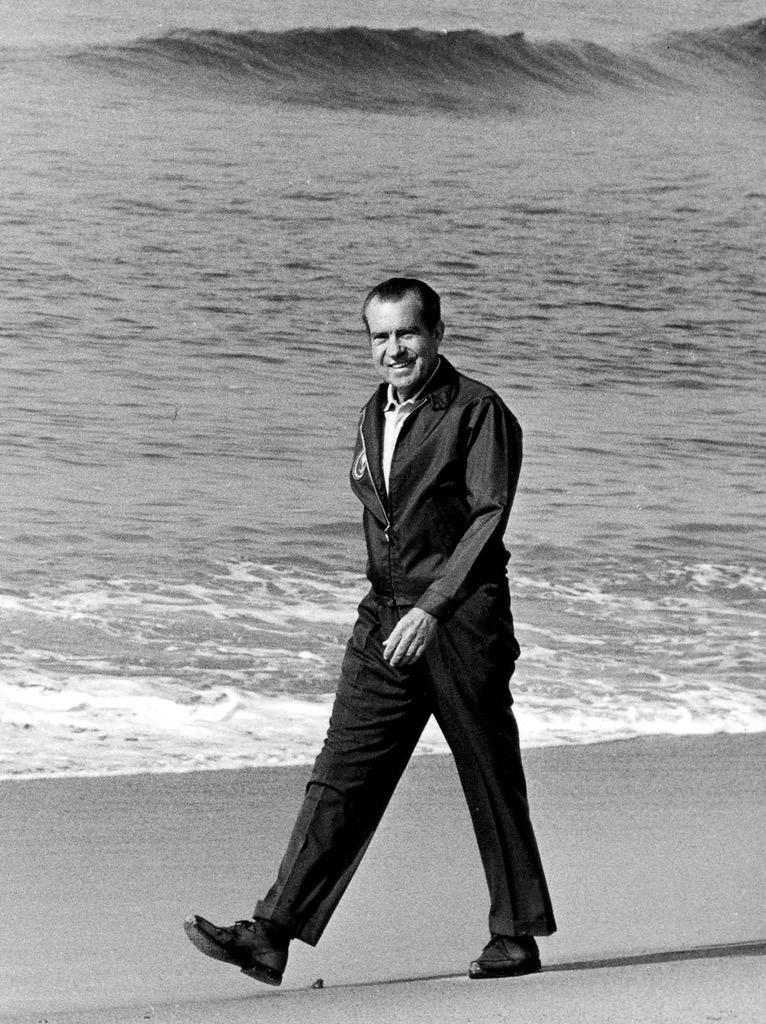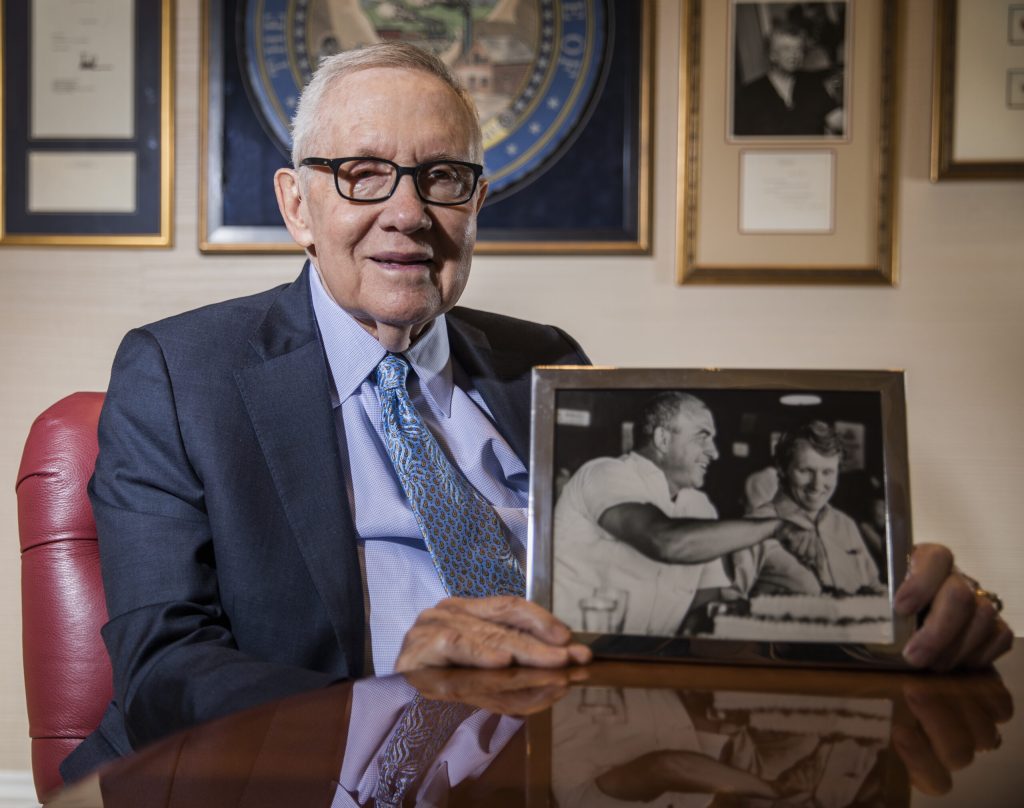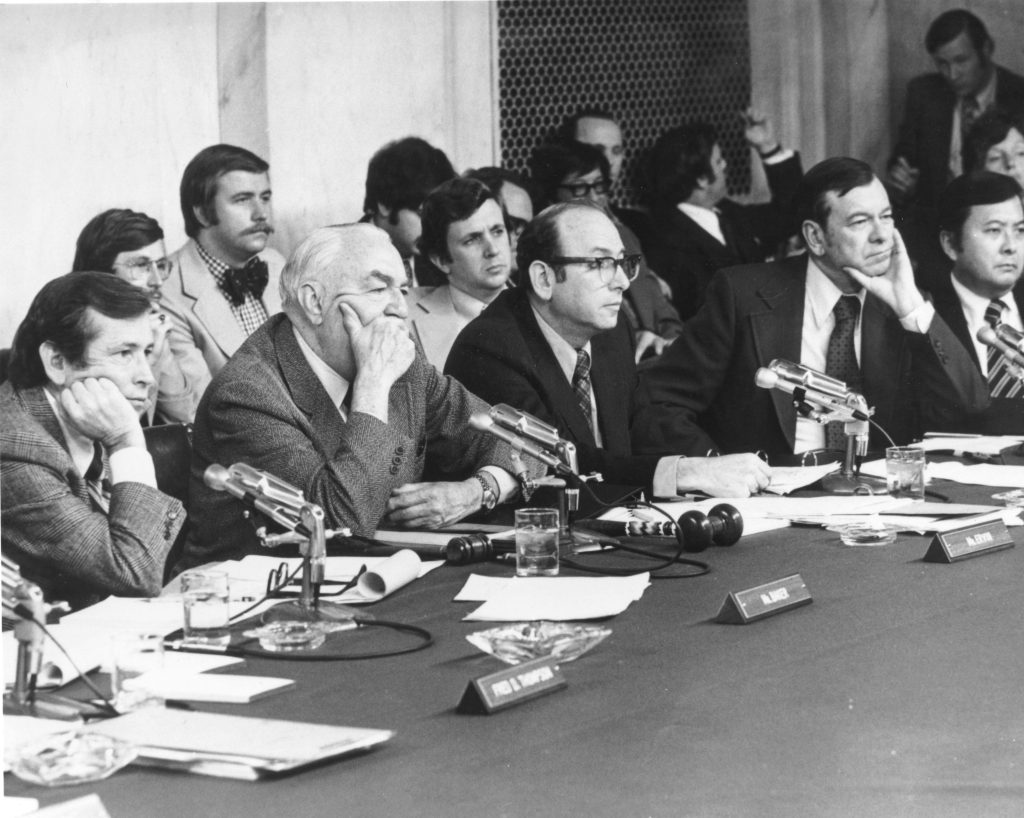Forty-eight years ago this week Republican president Richard Nixon signed into law the Endangered Species Act (ESA), a landmark piece of legislation that, as Nixon said, gave our government tools to protect “the rich array of animal life with which our country has been blessed.”
This most unlikely environmental president, a guy who walked the beach in wing tips, proclaimed the protection of nature “a many-faceted treasure, of value to scholars, scientists, and nature lovers alike, and it forms a vital part of the heritage we all share as Americans.”

The ESA was largely written by scientists, passed Congress with huge bipartisan majorities, and while it became a controversial law, nearly constantly under attack from the political right, it has worked to preserve many species. I regularly, and happily, watch a healthy population of bald eagles soar past my living room window.
The Endangered Species Act is as good a jumping off point as any to assess the state of the county, particularly the widespread rejection of science and how we have come to politicize absolutely everything. We have gone from a broad consensus about the role of science in public policy to some people attacking health care workers and burning face masks to demonstrate their “freedom.”
Just one example makes the case for the incoherence of the moment. Five Republican dominated states – Arkansas, Iowa, Florida, Tennessee and Kansas – have decided to provide unemployment benefits to workers who have lost jobs for refusing to get a free and very effective vaccine against a disease that in two years has killed nearly 820,000 Americans. Talk about perverted science. We are incentivizing people to get sick, and in many cases die.
And the stories continue to accumulate of people who refused a life-saving medicine believing the disease would never catch them, but then did.
For 75 years or so, the conservative movement in America held at bay its most reactionary, violent and conspiracy addled adherents. Beginning with the witch hunting demagogue Joseph McCarthy, the Republican Party flirted with, embraced but ultimately rejected the dividers and the poison spreaders.
William F. Buckley, once regarded as the intellectual godfather of modern conservatism, read the John Birch Society out of the Republican Party in the 1960’s, but the conspiracy crowd never went away. Goldwater lost in a historic landslide, but remains the godfather of the modern GOP.
Now the crowd that would have supported him in the 1960’s is in control, and armed, full of grievance and wallowing in a pond of scummy nonsense.
No state has ridden this wave more shockingly than Idaho. The state has always been a conservative bastion, only infrequently trusting a Democrat with high office. An argument can be made that the seeds of the state’s current hard right lurch were sown in 1964 when Idaho Republicans largely rejected the moderate leadership of then-governor Robert Smylie. Two strands of Idaho Republican politics – conservative and utterly reactionary – have been at war ever since.
Smylie became the target of the hard right when he less than enthusiastically supported Barry Goldwater’s presidential aspirations in 1964. As a governor and former attorney general, Smylie was well known and widely respected nationally and in the West. He was considered, as one regional columnist put it, “one of the shrewdest politicians the GOP has.” Smylie was regularly mentioned as a legitimate vice-presidential candidate or as a cabinet secretary in a Republican administration.
But Goldwaterites took over the party in 1964 and Smylie lost in a Republican primary two years later to one of the most conservative, and as it turned out least capable, candidates to ever reach the governor’s office. After Don Samuelson flamed out doing what the hard right wanted him to do – nothing really – Democrats held the governor’s office for a quarter century. The reactionaries retreated but never went away.

In a way, political history is repeating, but this time it’s worse. Many elected Idaho Republicans have embraced an anti-science, anti-public health and anti-education agenda more radical than anything in the 1960’s. More traditional conservatives like a former attorney general, secretary of state and house speaker have been forced to undertake independent efforts to “take back” the state from the modern heirs of earlier Birch Society crackpots.
Meanwhile, a supporter of radical militias and opponent of public education challenges the incumbent governor who has been pushed nearly as far to the right as Samuelson was sixty years ago.
Idaho’s federal delegation, rarely willing to stand against the intolerance and negativity of the most reactionary elements in the Republican Party, has predictably stood idly by while the state’s politics have been polluted and radicalized. The “big lie” about the presidential election has metastasized without so much as a Tweet of opposition from this group of career politicians. They remain more concerned about re-election than the threats of violence that grow louder by the day.
Political courage in the elected ranks of the Republican Party is as endangered as the species that Richard Nixon sought to protect nearly 50 years ago. There is no Bob Smylie, who battled the reactionaries of his day, and few examples to rival that of then-Oregon governor Mark Hatfield who used the big stage of the keynote speech at the Republican convention in 1964 to denounce embittered conservatives.
“There are bigots in this nation,” Hatfield said in 1964, “who spew forth their venom of hate.” He called them out by name – the Birch Society, the Klan and Communist groups. Hatfield, a deeply religious man, was denounced, as the New York Times reported, as “a demagogue and hate monger” who was “anti-Christian.” One critic asked of Hatfield, perfectly in tune with the current moment, “is there no one with courage to make a speech to say ‘I am for white folks?’”
There was a time not that long ago when Idaho Republican leaders tried to foster a broad consensus approach to the state’s governance. Then-governor Dirk Kempthorne, for example, recognized the danger of the state’s shockingly low vaccination rates for school aged children in 1999 and launched a high-profile initiative to educate parents. Do nothing Republican legislators carved up the plan to the point it eventually collapsed into ineffectiveness. Idaho’s vaccination rates remained dismal, and over time resistance turned to denial and then death. Not surprisingly the state’s vaccination rates are the worst in the country.

This is not just a failure of politics, but a repudiation of the very concept of government acting in the best interest of the most people.
In a democratic system the sole reason for political parties to exist is to create a forum for competing policy ideas – ideas based on truth, reason and attainable action that can address real issues. We now have one party unwilling – or unable – to engage rationally on real issues.
So sadly, we leave 2021 where we began this dismal year with American democracy in profound peril. It almost makes you long for the 1960’s.
—–0—–
Additional Reading:
A few other items for your New Year weekend consideration…
Harry Reid, former Senate majority leader and Democratic kingmaker, dies at 82
Whatever you think of his politics or his approach to legislating, Harry Reid was a figure of monumental importance to modern American politics. His death has occasioned many thoughtful obituaries, none more insightful that this from Megan Messerly in the Nevada Independent.
“Over more than three decades of service in Congress, Reid earned a reputation for fighting relentlessly to protect his home state and everyday Americans. As Senate Democratic leader for a dozen years, he played an instrumental role in passing the Affordable Care Act and shepherding through Congress pivotal economic recovery legislation in the wake of the Great Recession.”
Here is the link to the Independent story with lots of good stuff about Reid’s rather remarkable life.

Other Reid stories here from my pal Bob Mann.
And this from journalist Zachery D. Carter.
What college football’s past 20 years can teach us about America
Regular readers know I have my issues with college football – too much money, clear evidence of much physical and mental damage to players, too little accountability and much too little to do with higher education.
And, of course, I’ve checked in on a few end of year games. Still, college football is a mess.
“Many college football fans have chosen to just not think about the mounting evidence that the game they love can cause CTE for its players. Such denial not only allows continued enthusiasm for college football but also shapes Americans’ decisions to let their kids play the sport. In 2017, for example, The Wall Street Journal reported that in football-crazy Alabama, the participation rate in high school football had increased by an astounding 40 percent in the previous 10 years, the very same period in which scientists definitively established the football-CTE connection.”
Thoughtful piece here that won’t likely make you feel better about the sport.
Notable People Who Left Us in 2021
A fascinating life story of architect Richard Rogers from The Guardian.
“He was author of the groundbreaking Lloyd’s building in the City of London and the Pompidou Centre in Paris, but his impact was manifest less in his own buildings than in his influence on public policy, which saw a fundamental shift in the perception of inner cities away from being something to endure or escape, to being something desirable to enjoy.”
And Charlie Sykes has a look back at the man who perhaps more than any other remade the modern conservative movement – Rush Limbaugh.
“In the Age of Trump, Limbaugh might not have been the most important figure, but he was a central player in the devolution of the conservative mind.”
Understanding Limbaugh helps explain a whole lot.
People gave up on flu pandemic measures a century ago when they tired of them – and paid a price
You are probably as tired as I am of the pandemic – and reading about it – but this piece is very good. Ironic that many of the people who worry about how history is taught are the biggest spreaders of misinformation about Covid.
History matters.
“If we have anything to learn from the history of the 1918 influenza pandemic, as well as our experience thus far with COVID-19, however, it is that a premature return to pre-pandemic life risks more cases and more deaths.”
Link here to the article by medical historian J. Alexander Navarro.
That’s all I got for you. Except – to a happier New Year. All the best.










